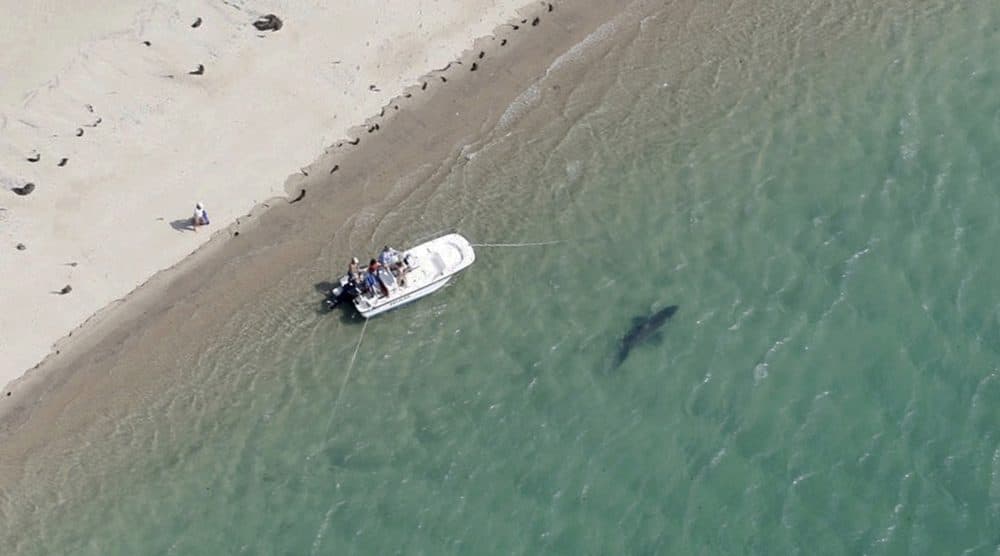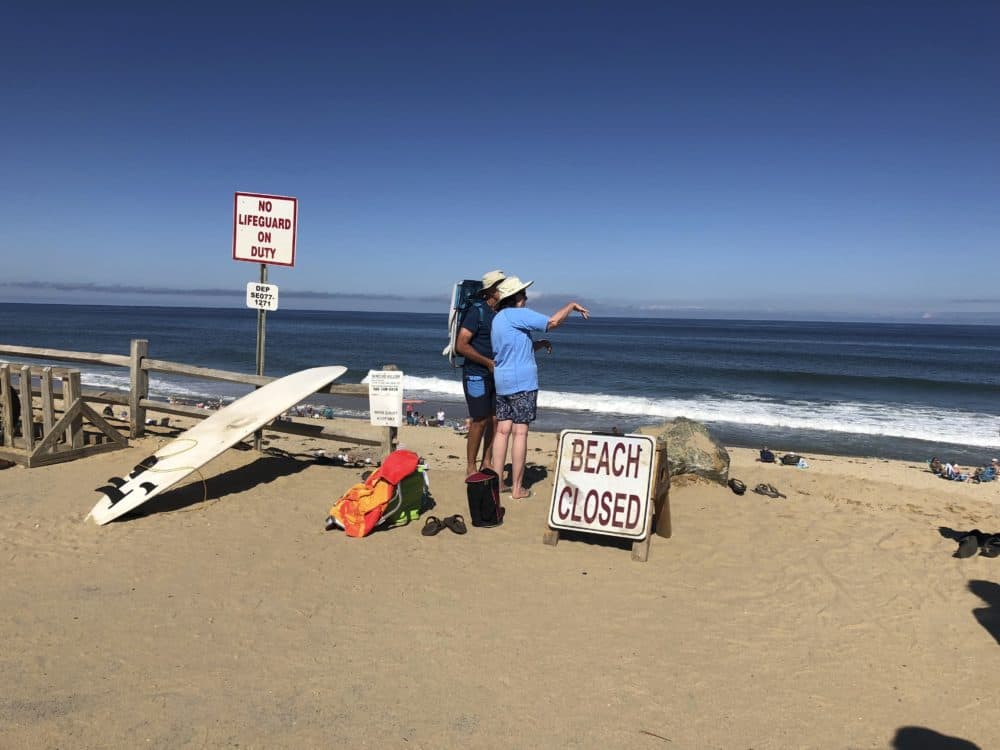Advertisement
Commentary
What We Can Learn From The Recent Shark Attacks On Cape Cod

It’s been a summer ritual for decades: dramatic headlines about a shark attack somewhere, scaring people on beaches everywhere, followed by commentaries about how silly it is to worry about a risk that’s so unlikely.
Now comes the tragic death of 26-year-old Arthur Medici of Revere, Mass., who was killed by a shark while boogie boarding off Cape Cod, to turn the whole question upside down. When you know the water is full of sharks — and the news has been full of stories, not just about shark sightings, but of an actual shark attack a couple of miles from where you plan to swim — wouldn’t it be prudent to just stay out of the water?
Medici’s death is tragic. But it also offers a teachable moment, about how screwy our choices about risk can be. I think about this a lot, as an expert in the psychology of risk perception.

We worry about many things more than the evidence warrants, and we worry about many things way less than the evidence warns. And those judgments can get us in trouble, in all sorts of ways.
Notice I said “judgments.” I didn’t call them “mistakes,” as one might be tempted to label Medici’s choice. The way we perceive risk, or potential danger, is not an exact calculation that has a right and wrong answer. As Paul Slovic, the pioneering researcher in the study of the psychology of risk perception, has put it, “risk is a feeling.” We take the facts and subconsciously run them through a maze of emotional and cognitive filters to come up with how we feel about those facts.
Consider a few of the filters that may have shaped Medici’s choice.
One is called optimism bias, which allows us to do most of the risky things we all do, by telling ourselves: “That only happens to somebody else. It won’t happen to me.” Another is the feeling that one has some control over the risk, false as that assumption may be. One can imagine Medici telling friends who may have cautioned against boogie boarding that day: “I won’t be alone. I’m going with a friend and we won’t go far from the beach.” And of course Medici, an engineering student, might have done what we all do when assessing risk, and used an overly simplistic analysis of the statistics to judge the danger the way he wanted to see it. After all, shark attacks are rare, right? (Unfortunately, the general statistics and the statistics for that particular stretch of Cape Cod these days are two dramatically different numbers.)
We worry about many things more than the evidence warrants, and we worry about many things way less than the evidence warns.
We’re less afraid of risks when we feel more familiar with them, and that might have played a role in Medici’s thinking, too. He was a frequent body surfer, comfortable in murky ocean water, and five days earlier --- and again the night before — he had body surfed at the same beach where he was attacked. We’re also less afraid of risks we engage in by choice, than when that same risk is imposed on us. It was a nice, warm, late summer weekend with some decent waves to ride: Medici wanted to be in the water.
It’s likely that Medici subconsciously ran the factual evidence through some or all of those filters, and tragically — through no fault of his own, but just following instincts we all share — this misjudgment cost him his life.

We all make “mistakes” like this and under-worry about all sorts of things. A sense of physical control, choice, optimism bias and familiarity, explain how we text while driving, or get behind the wheel after one too many drinks. Natural risks don’t scare us as much as human-made ones do, which is why we take lots of untested natural and herbal remedies (that have all sorts of harmful side effects) and don’t protect ourselves enough from the sun.
We also over-worry, and that puts us at risk, too. We worry unnecessarily about vaccines, despite evidence that the risks of vaccinating our children are nowhere near what some people fear. We freak out about anything associated with the words “chemicals” or “radiation,” and avoid products that have benefits with minimal risks, while choosing alternatives that sometimes cause greater harm. We over-worry about risks that scream at us from the daily headlines (this filter is called availability bias), like terrorism and plane crashes. This leads to the growing animosity toward people of Middle Eastern descent, or leads us to choose to drive instead of fly, significantly increasing the likelihood we’ll be hurt or killed as we travel.
Arthur Medici only did what we all do, all the time. He judged risk with his feelings, rather than based on a purely objective analysis of the evidence. We can learn from this tragic lesson, and honor his death, by trying to use a little more careful thinking to counteract our instincts when we make judgments about how to keep ourselves healthy and safe.
